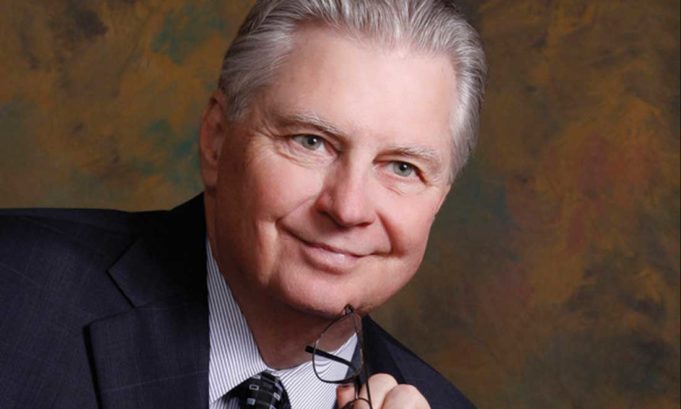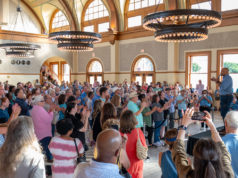Difficulty finding certain divorce cases prompted Fort Worth Star-Telegram reporter Max Baker to dig a little deeper. In his Oct. 20 piece, he determined that some cases “cannot be accessed through the county’s computer system … raising concerns about whether the public can actually find all the open records in Tarrant County’s family courts.”
The man in charge of those cases is District Clerk Tom Wilder.
Baker focused on a few big-name cases that he and others had been unable to track down through the district clerk’s online database. Attorneys sometimes file lawsuits using initials, making them difficult to find, Baker wrote. And attorneys can request that files containing sensitive information be withheld from online access, according to a recent Texas Supreme Court ruling. (Skeptics among us might wonder if attorneys purposely use initials and claim sensitive info just to make the cases difficult for prying eyes to find.)
As I was reading Baker’s story, I started thinking about how easy it once was to look up information on the district clerk computers that were set up at the Northwest Subcourthouse Annex. But they were removed more than a year ago. I had visited that Lake Worth office many times over the years and don’t recall ever being the only visitor there. It seemed like a popular spot for residents to look up county cases.
Visiting the annex was a joy. Parking was a breeze in that large lot. Easy access. No parking fees. And getting into the building didn’t involve passing through a metal detector and security check, like at the three downtown court buildings where access to the files is now limited. I and many other folks preferred doing our look-ups at the easy-breezy annex building.
And then I started thinking about how Wilder created an online access system many years ago so that civil, family law, and felony criminal cases could be accessed over the internet. That’s great, except it requires a $120 onetime hook-up fee and a $35 monthly subscription. I was thinking about all of this, and I started to feel that maybe Wilder is making it more expensive and difficult to access public information. So I gave him a call to chat. He might offer logical reasons for everything, in which case I would say, “OK, Tom. Thanks for explaining things.”
Wilder, a hardcore Republican who has served as district clerk since 1995, is a tough and combative political animal. He probably felt a tinge of pride upon being named the “Politician Most Likely to Sell Grandma to the Highest Bidder” by the Weekly in 2006. He and I have maintained a communicative, working relationship over the years despite his dislike for some of the things that have been written about him in these pages. I called his office and left a message, and he called back the next day.
“I read the Star-Telegram story,” I began.
Wilder interrupted me to compare that article to the undigested remains of grass and grain that pass through a male cow’s stomach before landing with a plop in a pasture somewhere. I segued quickly to my concerns about the annex office’s closing and whether he was making it more difficult for people to access county public records. Then things became interesting.
“I quit the federal government because of their crap, and I’m …,” Wilder began.
Then he stopped and switched gears.
“No, it’s not available at Lake Worth anymore,” he said.
His remark about the federal government confused me for a moment. I kept listening to him talk.
The district clerk used to oversee passport applications, he said, but that job was transferred to the county clerk more than a year ago. In a move to benefit taxpayers, the district clerk’s computers were removed from annex buildings after the county clerk began handling passports, he said.
“That cost money to have deputies out there, do you understand that?” he said. “I don’t have an office at Lake Worth. I don’t have an office at any of the subcourthouses.”
Three buildings downtown are currently available to look up online information about cases, he said. Or I could contact his office about cases I’m trying to find and someone would look them up, make the info available, and charge the appropriate fees for printing. As for the cases that Baker had been unable to find, Wilder’s staff had removed them from the online database after the Texas Supreme Court ruling, he said.
Baker “doesn’t understand any of that,” Wilder said. “He didn’t want to understand any of that, and I doubt if you will either. I do things down here according to the law and what I have to conform to.”
It was nice of Wilder to volunteer to look up cases for me. However, that wouldn’t help other residents.
“My concern is just the ease of getting information,” I said.
“My business is not ‘ease,’ ” he said. “We have an online access.”
I mentioned the hook-up fee and monthly subscription rates.
“So what?” he said.
“So what?”
“You don’t think the taxpayer doesn’t have an expense here?” he said.
I asked him at what point would the money he has been collecting from the fees and subscriptions pay for the overhead, allowing the service to become free for those taxpayers.
“I don’t even set the price on that, so y’all don’t have any idea what you’re talking about,” Wilder said.
“That is why I’m calling to ask questions,” I said.
“Go to my website,” he said. “We’re way better than most counties. Bexar County doesn’t even have online access. Harris County doesn’t put everything online. They don’t put any family cases online. I’ve expanded access to court records, not shrunk them. So just because it’s not convenient for you news people … . The Star-Telegram is a web access subscriber, as is almost every other media in town. I won two statewide awards on that because I balance the needs of the taxpayer as well as those of the accessers.” (Note: “Accessers” is not a word, but I understood what he meant).
I tried to tell him that I wanted to understand his reasoning, not to argue with him. He was done, though.
“That’s all I’ve got to say about it,” he said. “You print whatever you want. Y’all never write a fair article on us. You go ahead and write what you want to write because you’re going to do that anyway no matter what I tell you.”
Wilder sounded like a bureaucrat emboldened by the Trumpian “fake news” rallying cry of hard-right conservatives who don’t like being scrutinized in office.
Still curious as to why the district clerk no longer handled passports, I spoke with someone at the county clerk’s office. An official there said the district clerk had “parted ways” with the U.S. Department of State over proposed rule changes. Afterward, passport duties had been transferred to the county clerk.
And then things began to become clear in my mind. I decided to do what Wilder suggested –– print whatever I want.
I recalled how Wilder had clashed with feds at the State Department over his handling of passport applications in 2015. Wilder’s department had been processing the applications at a half-dozen offices around the county since 1999. But the feds reviewed the local processes and wanted changes. Rather than comply, Wilder took his ball and went home. And that meant vacating those six offices, which meant removing district clerk computers, which meant everybody in farflung Tarrant County having to travel downtown, pay for parking, and pass through metal detectors to look up cases, or else pay for the hook-up and subscription fees. And that change occurred not because Wilder was trying to save tax money but because of his pissing match with the feds.
Postscript: Baker updated his story on Nov. 27. Seems his investigation had an impact on Wilder after all. In “After divorce cases couldn’t be found, clerk moves to unmask anonymous lawsuits,” Baker described how the district clerk would be “taking steps to end the decades-long practice of allowing lawsuits to be filed with initials, aliases and pseudonyms as a way to hide the identities of the people involved.”













“And then things began to become clear in my mind. I decided to do what Wilder suggested –– print whatever I want.” Love it!